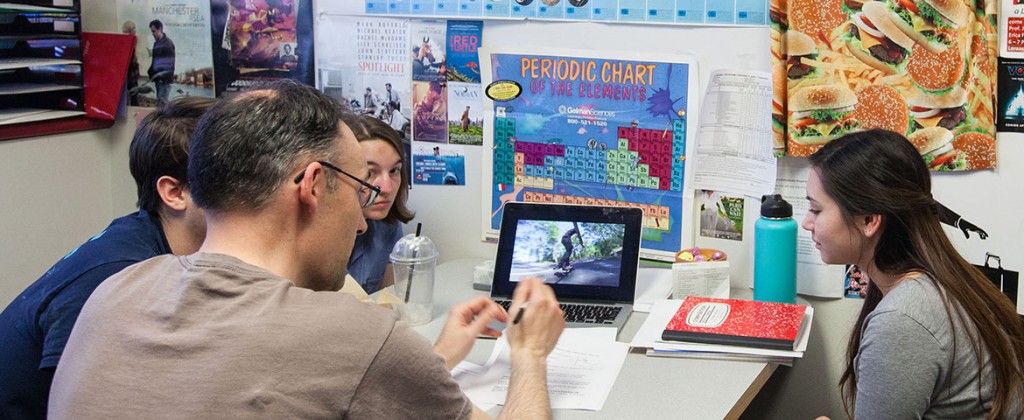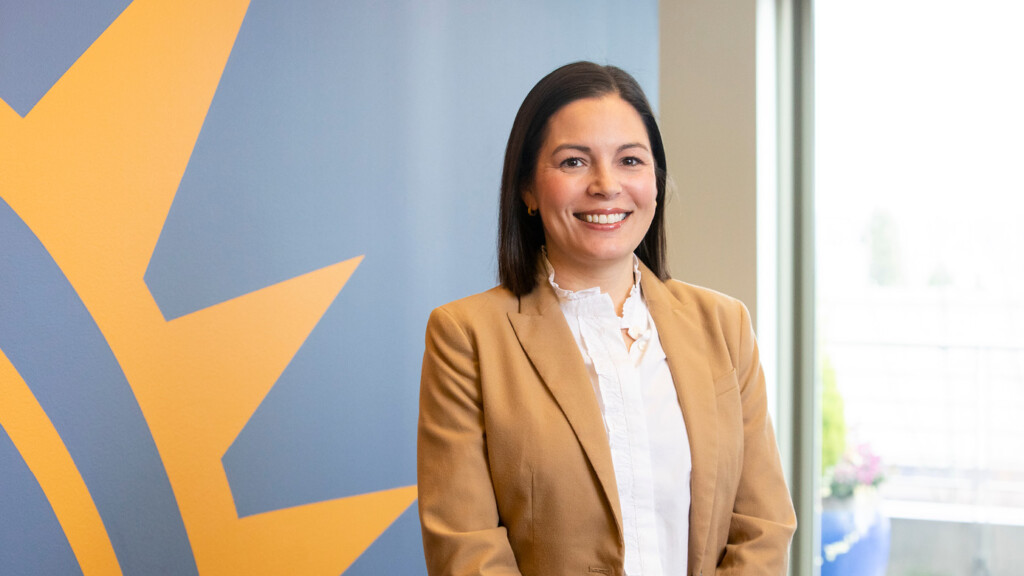Page 5 • (192 results in 0.058 seconds)
-
Message from Seth Dowland, WMGS Chair: We are delighted to present the abstracts of our 2020 Women's and Gender Studies capstone students.
assignment of value to others is contingent on the identities one holds. When examining interactions between users on dating apps, the ascription of value is often based on visible identity characteristics users may deem to be attractive or valuable. However, this process of assigning value is indicative of larger structural inequalities in power and domination. In order to analyze said interactions, I aim to discuss the culturally established biases against weight and race as case studies to identify
-

High school choir and guitar teacher Alonso Brizuela ’14 was in Spokane at a national choral directors conference in mid-March of 2020. Just a day and half days into events, the conference shut down early—due to a mysterious new illness that had arrived in the…
complete and utter pivot for everyone.” Summer brought time to breathe for all three teachers. Brizuela and Lord prepared for fall classrooms with virtual options, while Zwang entered a Montessori teacher-training program. Sarah Lord's children doing school work on the kitchen table. School Year 2020-2021: New Approaches By the fall of 2020, Brizuela felt more comfortable teaching music in a virtual classroom and encouraging students in conversation and interactions. Although students often turned off
-

Struggling to understand a concept from last week’s class? Stressing about that end-of-the-year project? All hope is not lost: Try stopping by your professor’s office hours and talking it out with them. While the idea of approaching a faculty member for some one-on-one time can…
positive interactions between student and professor — it also makes office hours a space for student interaction and collaboration with their peers. “I kind of think of it as a free-for-all. They can show up whenever they want,” chemistry professor Justin Lytle said about his office hours availability. “They don’t have to ask me: ‘Can I stop by?’ And I like to do it as a group because there’s a really good chance that the person sitting here will need to know what the person over there is asking
-
Students who graduate with a B.A. in sociology and enter the job market directly will find themselves competing with other liberal arts students, but with an advantage--knowledge of key social
effectively in writing and presentations. Practice Critical Thinking: Lean to look beyond the surface of issues to discover the “why”. Build your analytical skills. Solve problems and identify opportunities. Gain a Global Perspective: Learn about different cultures and how to analyze the interactions of groups and societies through a global and historical perspective. Prepare for Graduate School: An undergraduate major in sociology provides an excellent foundation for graduate study in a wide range of
-

The PLU Residence Hall Association, or RHA, brings students together for social events, community forums, and to advocate for residence hall-related issues. RHA president Hezekiah Goodwin ’22 thinks of his role in building a vibrant student community as a campus vocation. We met with him…
establishes an effective and representative advocate body for residence hall related issues.What’s the first event RHA will be hosting this year? We have our big block party this Friday. It’s one of our hit events where people come to Red Square to dance, mingle, meet new students, and just have a good time. We’re super stoked for that, especially for folks who didn’t really have in-person interactions with other students last year. How does the ongoing pandemic affect the work of RHA? Last year we had to
-
The past few months have been a challenging time for education. PLU faculty had to quickly adapt their classrooms into an online environment and rethink how to deliver their pedagogy in entirely new ways. One of the biggest obstacles to online teaching and learning is…
provide a platform for, the essential communication that occurs in the physical classroom. Although there’s not a perfect replacement for in-person conversation, online discussion tools can be used to promote student communication and collaboration. These tools also offer alternative methods of communication that aren’t possible during face-to-face interactions. Campuswire is an engaging and modern online discussion tool that replaces discussion boards with a single platform that combines course
-
Many graduate students finance their program through a combination of personal funds, educational loans, employer support (if eligible), military benefits (if eligible), and scholarships
-time merit scholarship, which, if awarded, will be applied to the first term of the program.Graduate AssistantshipsThe Graduate Assistantship program offers graduate students an opportunity to participate in academic and administrative activities that will enhance their graduate education experience, as well as provide financial assistance. A limited number of assistantships are available during academic year. Full awards are very rare. In general, assistantships awards are for interactions and
-
MESA Day tests math and science skills The voices of 400 elementary, middle and high school students bounced off the walls of Olson and Memorial gyms at the annual MESA Day competition. Working in teams, the students built catapults from Dixie cups and plastic spoons,…
six South Puget Sound school districts participate in the program through after-school activities, classroom activities and interactions with role models, Tisdale explained. Role models include PLU students who visit MESA classrooms regularly and interact with students in the program. Washington state’s MESA program includes four other offices across the state in Spokane, Yakima Valley/Tri-Cities, Vancouver and Seattle. A local university sponsors each program. The national organization, MESA USA
-

Daffodil Royalty Blossoms at PLU Five members of the 2014 Pierce County Royal Daffodil Court are all new Lutes this fall. From left: KayLee Weist, Nina Thach, Marissa Modestowicz (queen), Ji Larson and Kaetlynn Brown. (Photo: John Struzenberg ’16) 5 Members of the 2014 Court…
had been dead-set on PLU,” said Larson, who plans to major in Chinese Studies. Weist, a Nursing major, said she wanted to be a Lute to “impact the community I’m currently serving in.” All five already have made a big impact as part of the Royal Daffodil Court, made up of high-school seniors from around Pierce County who develop public speaking skills, self-confidence and poise through their interactions with the community. “I’ve gotten to spend time with countless people from all walks of life
-

Anni Lange ’00 is vice president of marketing and communications for Sound Physicians , a national medical group headquartered in Tacoma. Lange oversees all aspects of marketing and communications including brand management, marketing operations, sales and recruitment marketing and internal and external communications. Lange majored…
regularly sees friends from her time at PLU but is also continually impressed by the informal alumni network around the South Sound. A brief interaction often leads to a PLU connection, and which Lutes she might know from different years. At Sound Physicians, Lange has worked with other PLU grads, including a current member of her team. “We talk regularly about how our small class sizes gave us direct access to professors in a way peers didn’t have,” Lange says. “The interactions give you confidence as
Do you have any feedback for us? If so, feel free to use our Feedback Form.


